ARTICLE AD BOX
Elaine Dunkley
Education correspondent, BBC News•@bbcelaine
Kate McGough
Education producer, BBC News

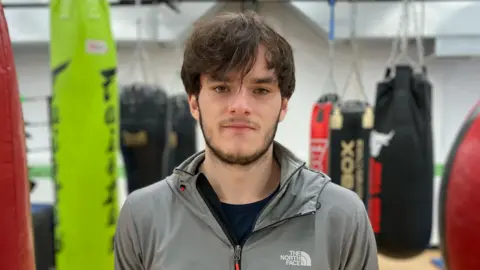 BBC /Dan Nelson
BBC /Dan Nelson
More young people were not in work, education or training at the end of 2024 than at any point in the past 11 years, new data suggests.
The latest Office for National Statistics (ONS) figures suggest 987,000 16-24-year-olds were not in work, education or training between October and December.
That is 13.4%, or almost one out of every seven people in that age range.
The government says every young person will be given the chance to "earn or learn" under its Youth Guarantee initiative.
Young men are more likely than young women to be not in education, employment or training (Neet), according to the latest ONS estimates.
In October to December 2024, an estimated 14.4% of all male 16-24-year-olds were Neet, compared with 12.3% female.
But numbers overall are rising too.
The October to December 2024 figure of 987,000 was up by 110,000 in a year.
Young people not in employment can be unemployed - which means they are actively seeking work - or defined as economically inactive - meaning they are not seeking work.
Most young people who are Neet fall into the economically inactive category, with 595,000 young people economically inactive in the latest stats, compared to 392,000 who were unemployed.
Those working with young Neet people say poor mental health is one of the key issues preventing them finding work.
In 2023, almost one out of every five (19.5%) had a mental-health condition, according to the latest yearly Department for Education figures.
The King's Trust charity, founded by King Charles III when he was Prince of Wales to help young people find a job or start a business, published its annual Youth Index survey on Thursday.
Most of the 4,285 16-25-year-olds across the UK surveyed in November and December felt anxious about their future on a daily basis.
And of the 460 who were Neet:
- almost one out of every three (31%) said they would like to work but poor mental health prevented it
- one out of every two (50%) said being unemployed made them feel hopeless about the future
- almost one out of every five (19%) said they were applying for jobs every day without success
At a community centre in Toxteth, Liverpool, Niall, 22, told BBC News he saw many of his friends "throwing their potential away", as he had from the age of 16 to 20.

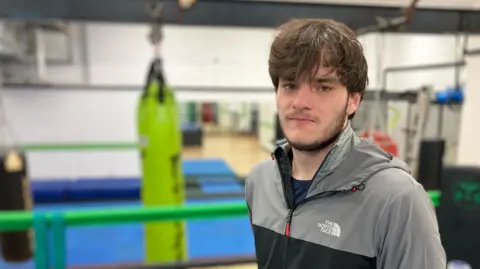 BBC / Kate McGough
BBC / Kate McGough
Niall says more centres should be available to connect young people with those helping their community
He says he became Neet after he got in with the "wrong people".
"I'd go out partying or doing drugs, spending time just doing drugs to try and escape. So obviously I had to get off all that stuff," he says.
He believes there aren't enough community centres for young people, and that they often grow up around others who are not "doing the right things".
Niall is on Universal Credit while he looks for work, but says he has been inspired by those who helped him to become a youth worker himself.
"I feel great about the future now. I wouldn't enjoy going back to that lifestyle now because I know what comes of it. I've put so much work into myself now that I want to build something."
Jack Rice has been a youth worker for three years, providing support for young people in Knowsley who have dropped out of school or college.

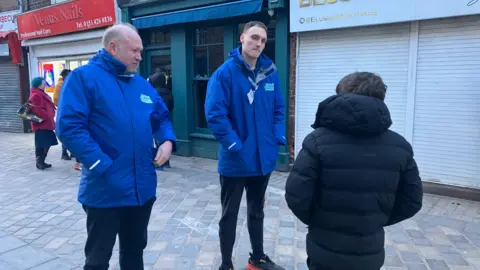 BBC / Kate McGough
BBC / Kate McGough
Youth worker Jack (centre) often speaks to young people out and about on the streets of Knowsley
He has organised a football session for young people in the area to play at every Monday, regardless of what is happening at home or school.
It's a useful escape for people like Luke, 16, who says he is regularly applying for work but finds it hard to get his foot in the door.
He wants to be a roofer and applies for "loads" of jobs, he says, but believes his young age puts potential employers off giving him a chance.
He is also applying for apprenticeships, and says he wants to start a college course next year if that doesn't work out.

 BBC / Kate McGough
BBC / Kate McGough
The BBC spoke to 16-year-old Luke at a football evening organised by local youth workers
Gill Bainbridge, who has been the chief executive of the Merseyside Youth Association for over a decade, says the young people they work with are resilient and aspirational, but are facing an increasingly complex range of issues that are barriers to work.
Her charity supports over 5,000 young people every year to gain life skills and qualifications.
She says around half of the young people on their Talent Match programme, targeted at getting Neet young people into work or training, have special educational needs.
"You might have a young person who is on the autistic spectrum, who also struggled with their mental health, who therefore has low confidence," she says.
"They haven't then succeeded in school, so it becomes a multi-layered set of issues that you really need to work at with a young person in the long term to start to unravel and address it step by step."

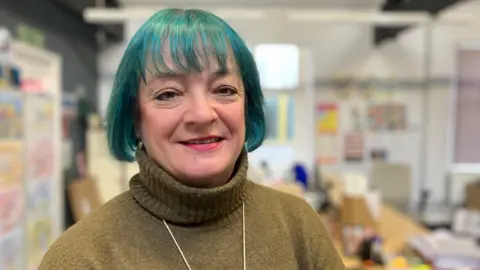 BBC / Kate McGough
BBC / Kate McGough
Gill Bainbridge has been running the Merseyside Youth Association for more than 10 years
The work done by the charity was crucial for 23-year-old Harry, who has now come out of the other side of three years as a Neet young person in which he was largely confined to his bedroom.
He said the downward spiral in his mental health during Covid, after completing his A-levels in 2019, left him feeling "trapped".
"I didn't know who to speak to," he says.
"It was so much easier, with how bad my mental health was, to just rot in this cycle and fester in my room."

 BBC / Kate McGough
BBC / Kate McGough
Harry says his mental health was extremely low when his mum first brought him to the Merseyside Youth Association
Harry got some free one-to-one counselling through the Merseyside Youth Association, as well as a mentor who put him on courses that helped him gain life skills, qualifications and friends.
Two years on, Harry has his dream job working for a music publishing company. He says the support he got from the charity saved his life.
Dr Andrea Barry, principal economist at the non-profit Youth Futures Foundation, says it's essential the government can reach young Neet people who are not engaging with its services.
"Unfortunately, young people who are not looking for work are not going to be in contact with the job centre," she says.
"There's significant scarring effects for young people when they're out of work or education long-term. And it's also important for the government's economic growth goals to get more young people in work and helping to grow the economy."
The government recently relaxed some of the rules around apprenticeships for young people, but Dr Barry would like to see them go further, with a guarantee that Level 2 or 3 apprenticeships will be available to them.
She also says more supported internships, as well as more support for schools and colleges to get young people ready for work, could help bring Neet numbers down.
A spokesperson for the Department for Work & Pensions said they are "determined that no young person gets left behind".
They added: "Our Get Britain Working White Paper will transform job centres and will ensure every young person is given the opportunity to earn or learn through our Youth Guarantee, while we significantly expand mental health support for young people."

 2 months ago
30
2 months ago
30
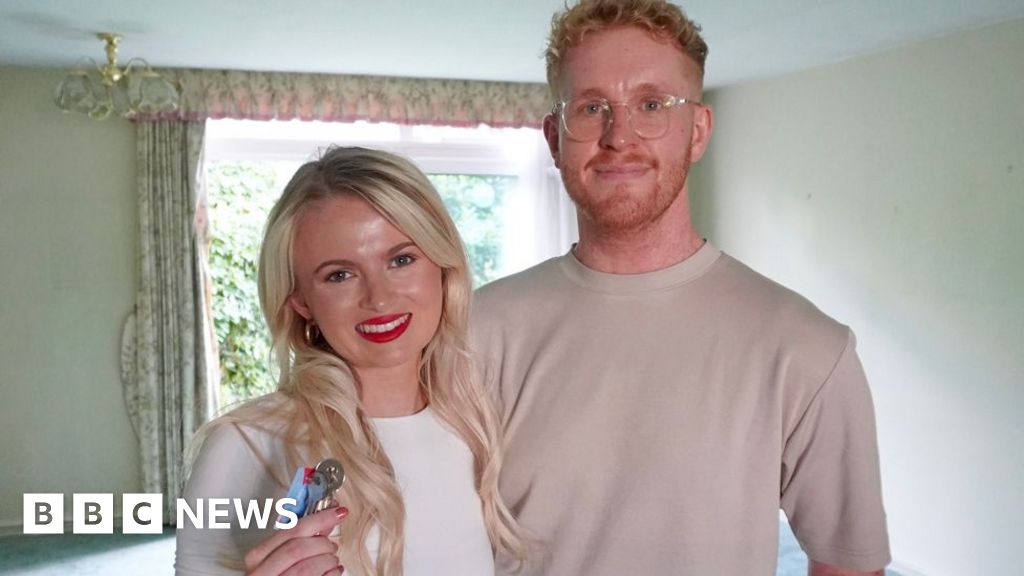
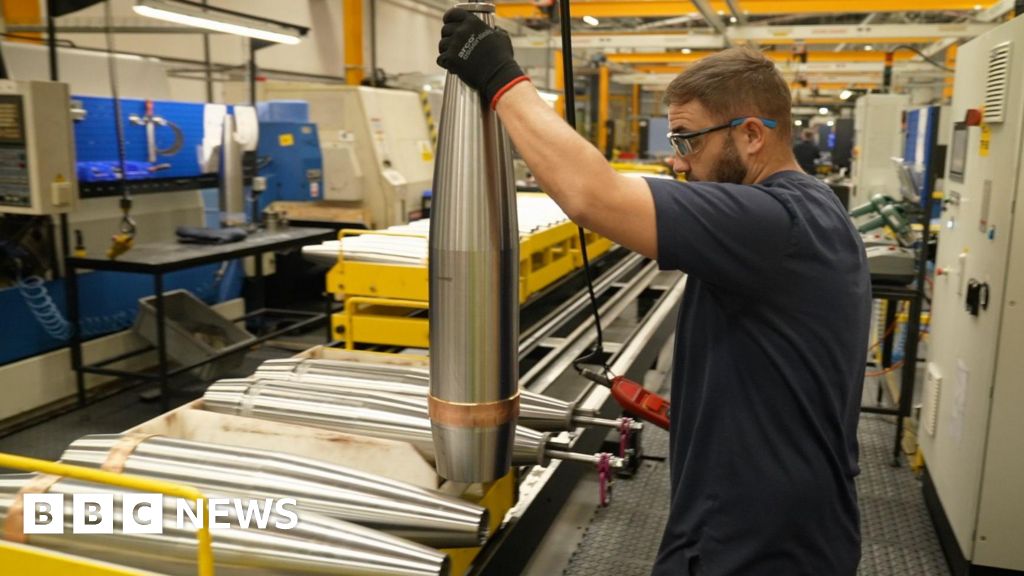
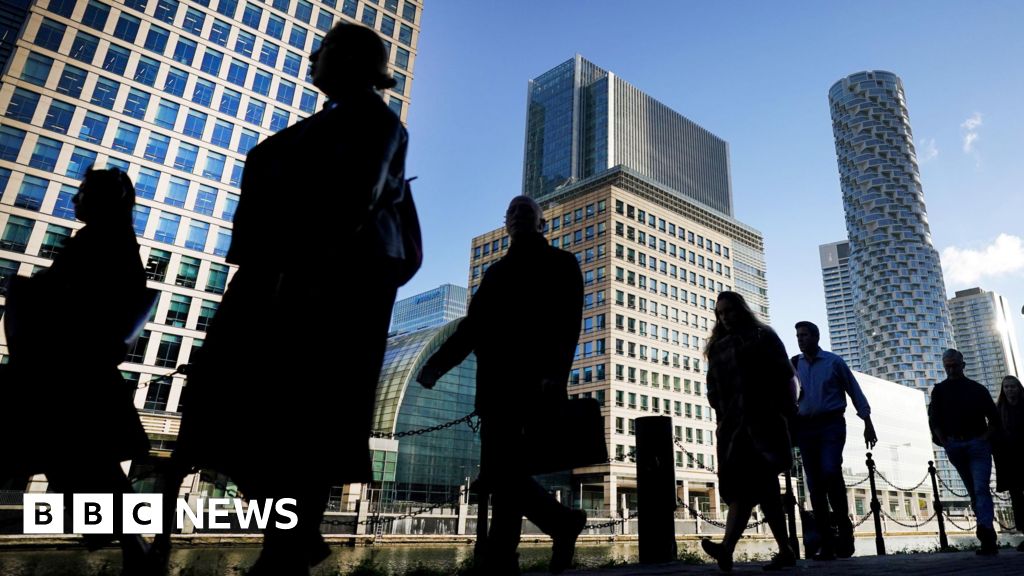





 English (US) ·
English (US) ·